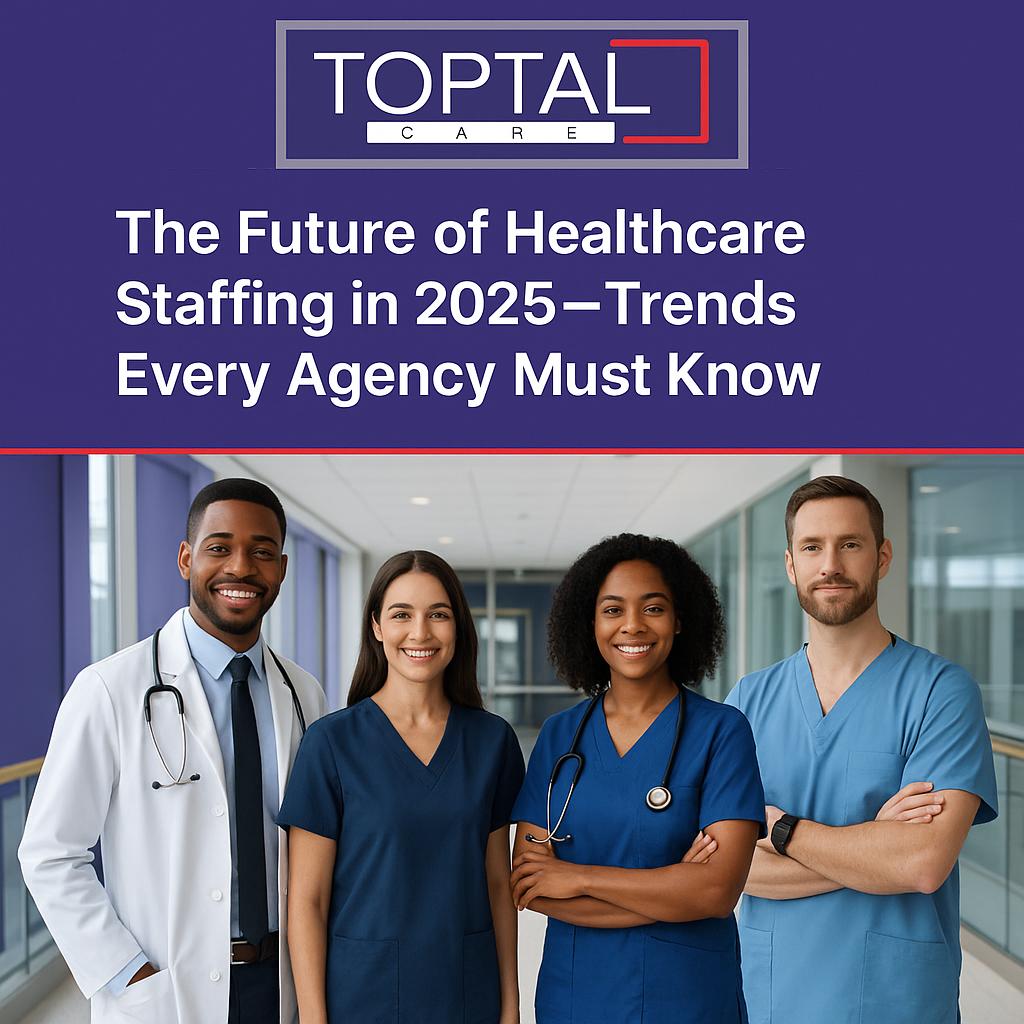The Future of Healthcare Staffing in 2025—Trends Every Agency Must Know
The healthcare staffing landscape in the United States is transforming faster than ever. As we step into 2025, agencies navigating this space face evolving demands from healthcare facilities, clinicians, and technology. Understanding the latest trends is no longer optional—it’s essential for growth and sustainability.
Why Healthcare Staffing Is Changing in 2025
The combined impact of talent shortages, shifting workforce expectations, and healthcare innovation has redefined staffing strategies. Agencies that stay ahead of these trends are more likely to secure long-term contracts, attract skilled professionals, and maintain profitability.
Top Healthcare Staffing Trends in 2025
- Flexible Work Arrangements Are Non-Negotiable
Today’s clinicians want control over their schedules. Agencies must now offer:
- Per diem and PRN shifts for local flexibility
- Short-term travel nursing contracts
- Hybrid options in therapy and allied health roles
By providing flexibility, staffing firms can tap into a wider pool of nurses, therapists, and allied health professionals who value work-life balance as much as competitive pay.
- AI-Driven Recruitment & Predictive Analytics
Speed and accuracy in talent placement are game-changers. Healthcare staffing agencies are increasingly adopting:
- AI-powered candidate matching systems
- Predictive analytics to forecast client needs
- Chatbots and automated onboarding tools
These technologies streamline operations, reduce time-to-fill rates, and improve client and candidate satisfaction.
- Growth of Remote Healthcare Staffing
Telehealth has gone mainstream. In 2025, agencies are placing more:
- Remote therapists
- Virtual RNs and case managers
- Allied health professionals in telemedicine roles
This expands staffing possibilities beyond local talent pools and creates new revenue streams for agencies.
- Retention Strategies Must Take Center Stage
Healthcare professionals now expect more than just pay. Leading agencies focus on retention through:
- Competitive compensation packages
- Comprehensive benefits including mental health support
- Career development opportunities
In a market plagued by nursing shortages and allied health gaps, retaining existing staff is often more cost-effective than constant recruitment.
How Agencies Can Stay Competitive
Healthcare staffing firms should prioritize:
- Investing in technology platforms
- Expanding service offerings to include remote staffing
- Building clinician-first cultures that emphasize flexibility and support
Conclusion
The future of healthcare staffing in 2025 demands adaptability, innovation, and a deep understanding of clinician expectations. Agencies that embrace flexible work arrangements, leverage AI, and focus on retention will not only survive but thrive in this evolving industry.
If you'd like help drafting meta descriptions, headlines, or social post captions for this blog, just let me know
 (1).png)


